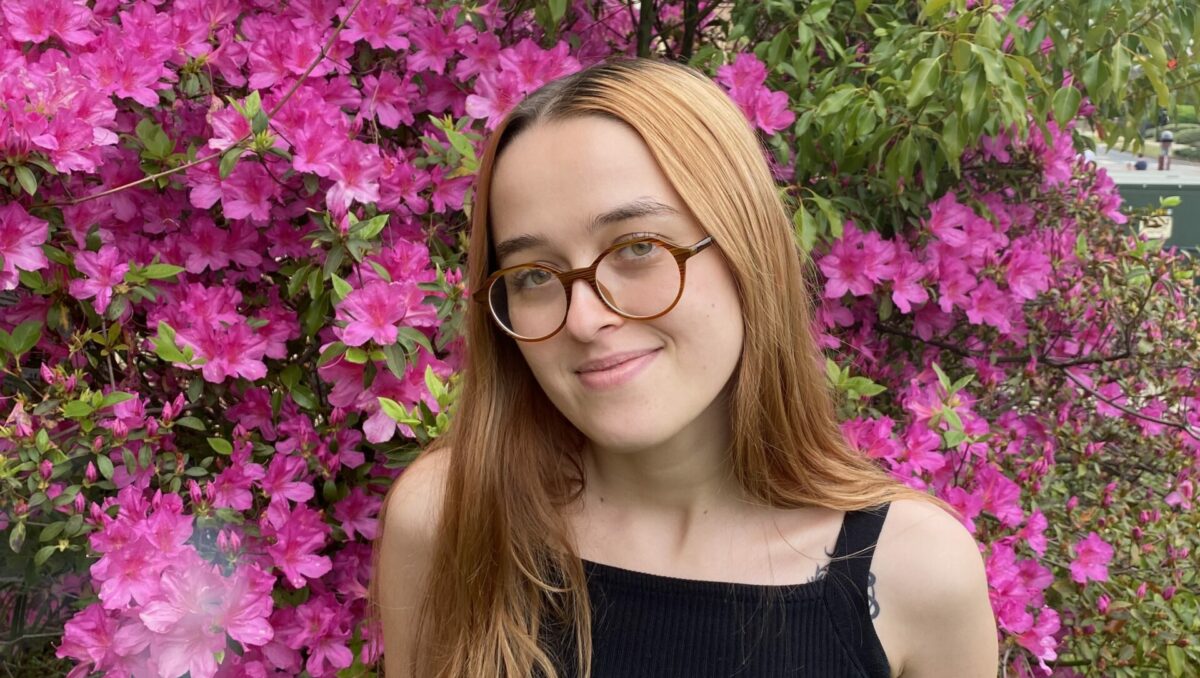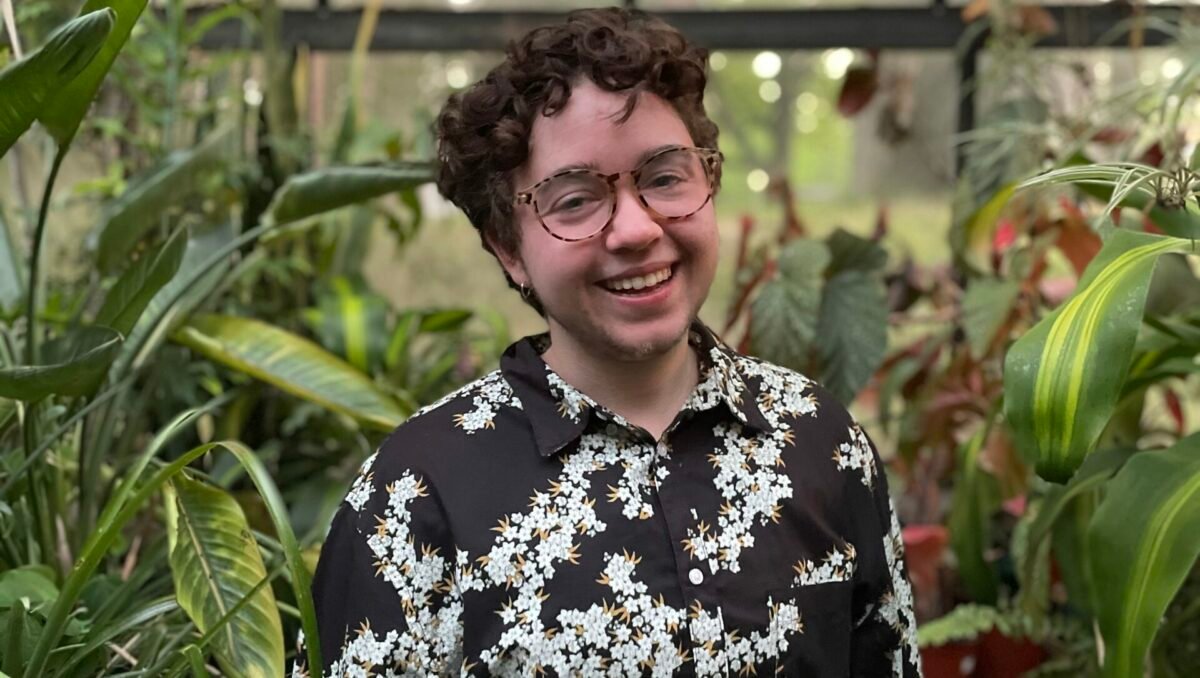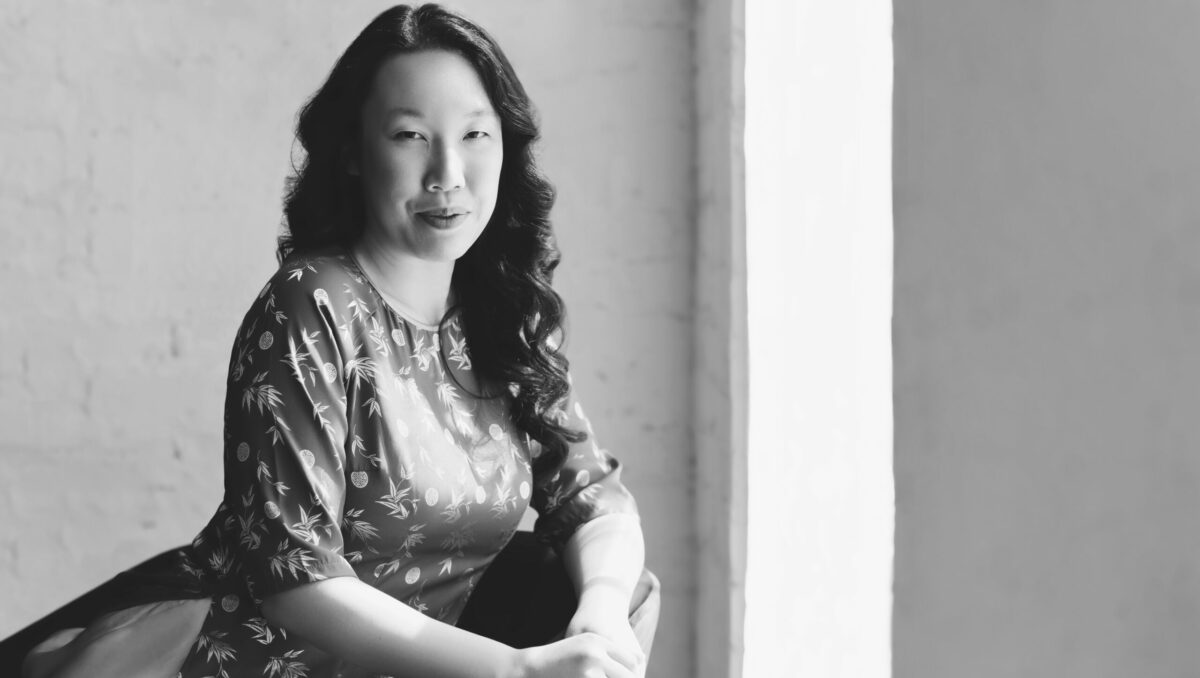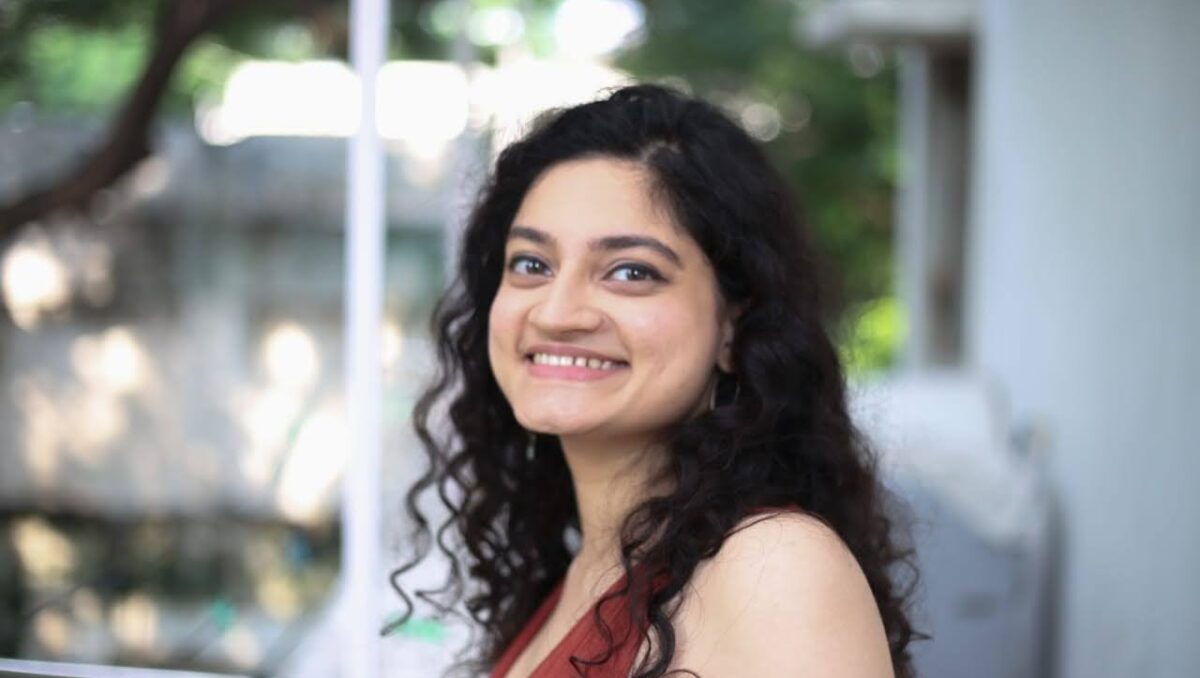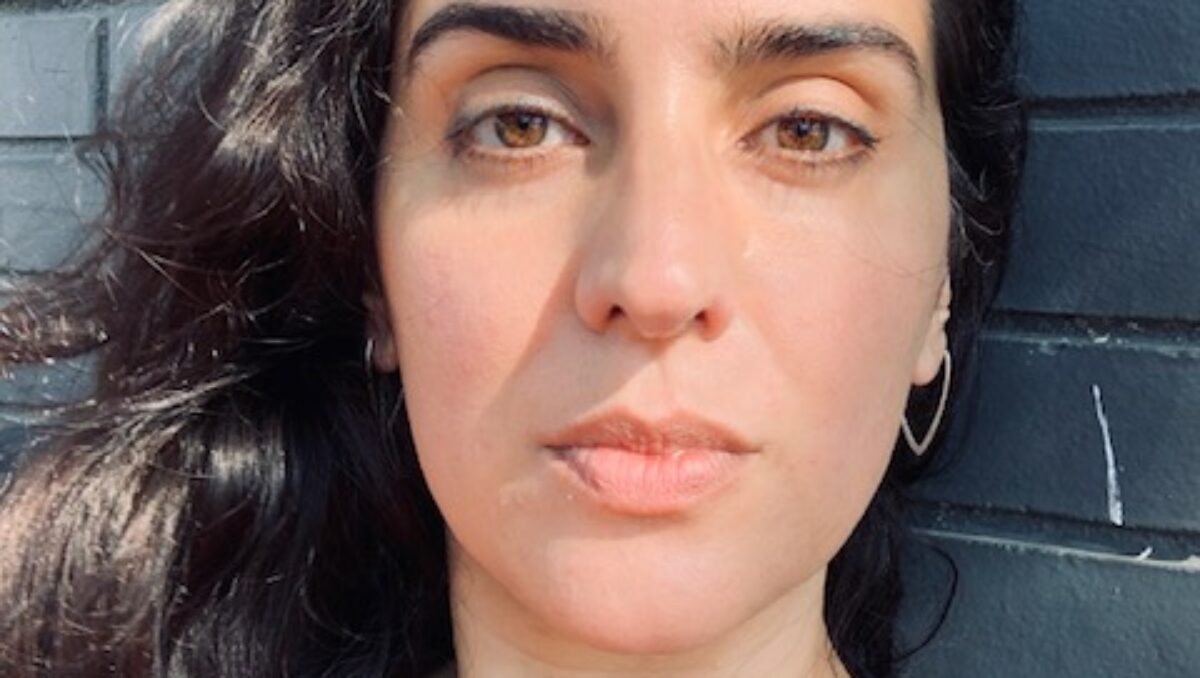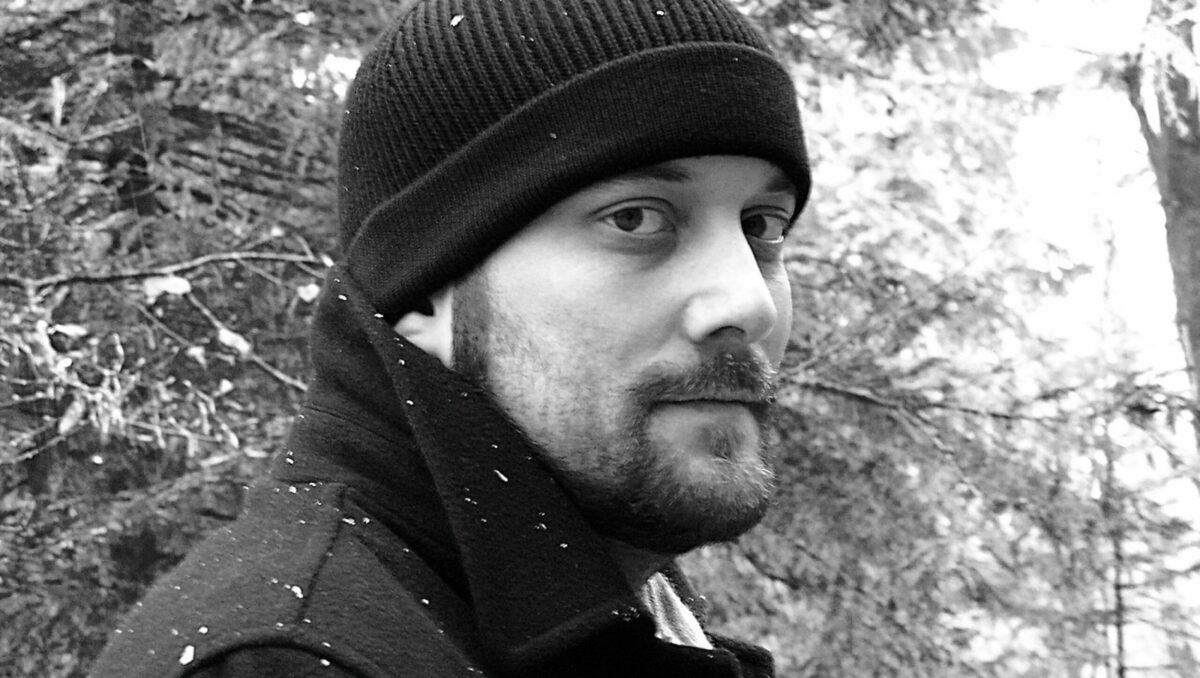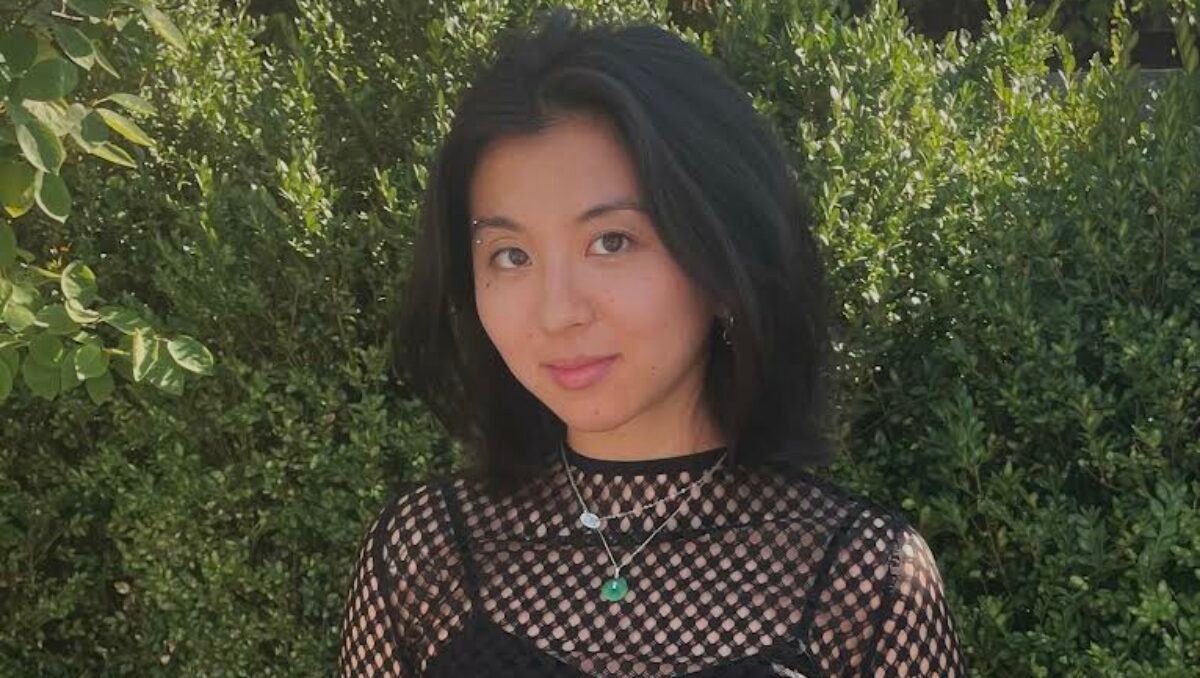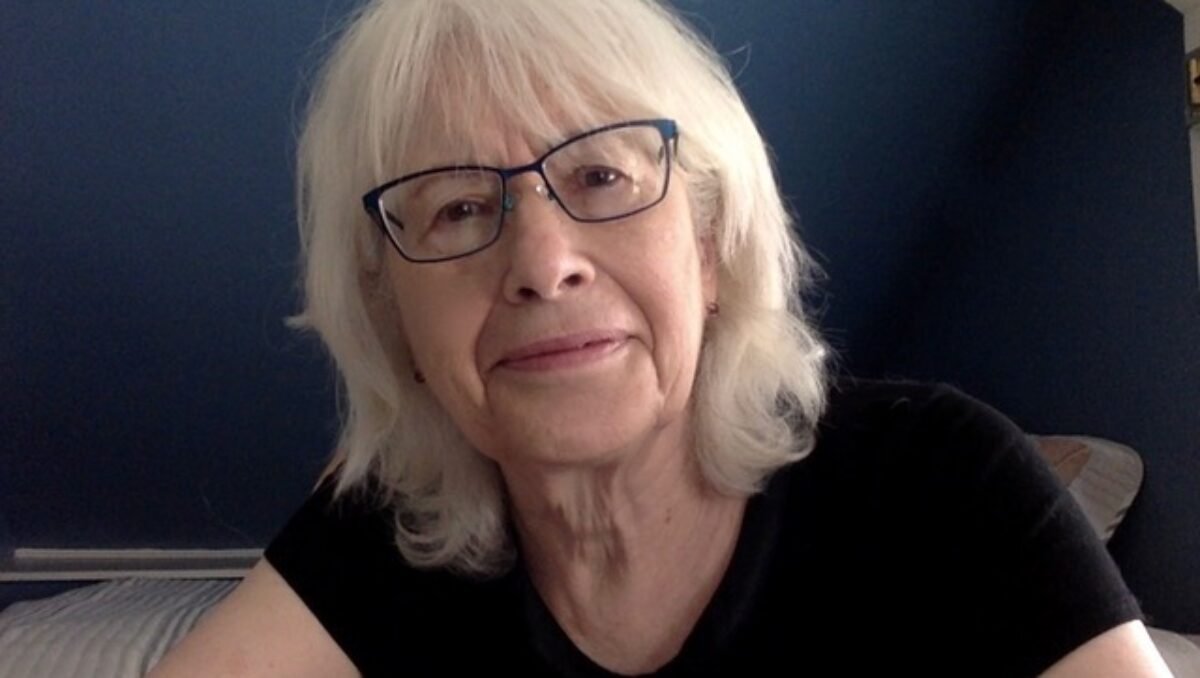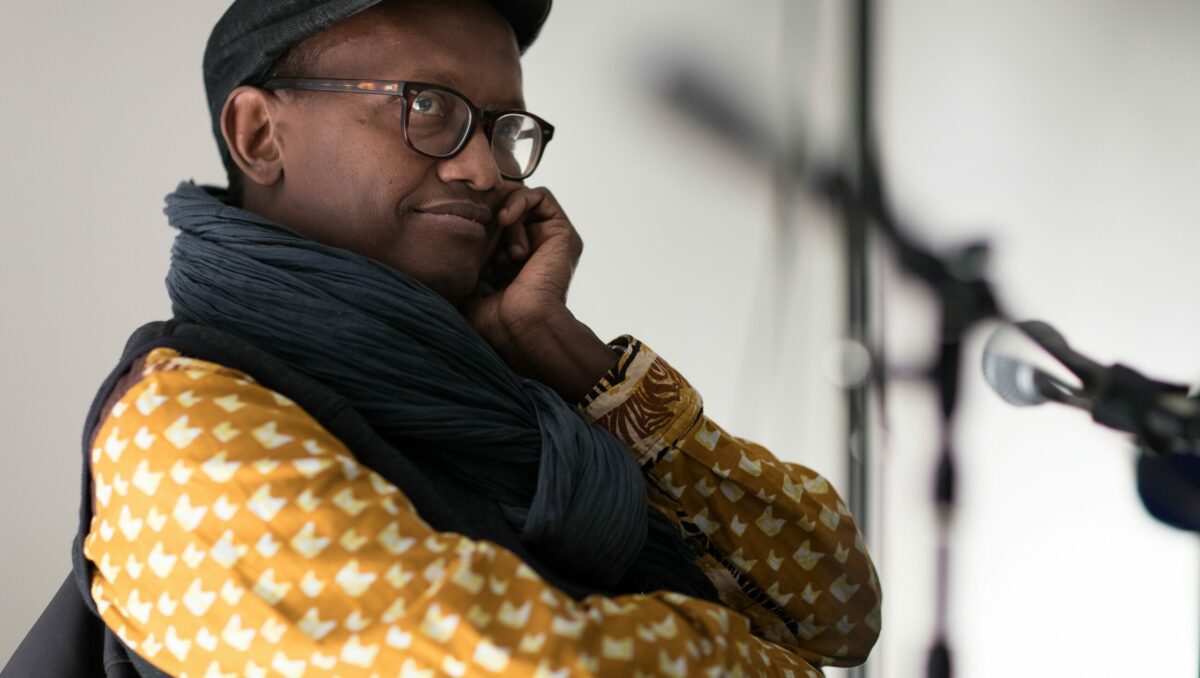ISSUE 27

ISSUE 27
POETRY
TWO POEMS by Zuleyha Ozturk Lasky
THE POINT OF ARTICULATION by Car Simione
TWO POEMS by Sophia Terazawa
TWO POEMS by Kuhu Joshi
SELF-PORTRAIT AS THE CORNFIELDS by Carolina Hotchandani
TWO POEMS by Daniele Pantano
TWO POEMS by Lucas Jorgensen
FICTION
DOG by Jade Song
NONFICTION
ASUNCION FEVER by Beverly Burch
TRANSLATION
A FLOWER THAT REFUSES TO BE POETRY by Kim Hyesoon, translated by Cindy Juyoung Ok
TWO POEMS by Abdourahman Waberi, translated by Nancy Naomi Carlson
(JANUARY) by Hanna Riisager, translated by Kristina Andersson Bicher
THREE POEMS by Nadja Küchenmeister, translated by Aimee Chor
from YOU by Chantal Neveu, translated by Erín Moure
AROUND THE FIRE by Gloria Susana Esquivel, translated by Joel Streicker
INVITATION TO END by Faris Kuseyri, translated by Patrick Sykes
- Published in All Issues, ISSUE 27
TWO POEMS by Zuleyha Ozturk Lasky
Severn, Maryland
pink mouths of crepe myrtle mouthing words like çay demle kızım and a sloped garden in the back and a creaking deck and a bookshelf full of religious texts and my bedroom in robin blue and hairbands always lost under couch cushions and prayer rug facing the direction it’s supposed to face and me facing the opposite way and prayer rugs quartered and stacked in a pile inside the tv console and prayer beads hanging from lamps and Keurig machine and milk frother and two teapots (one electric, one traditional) and windows facing trees and grape leaves brined in jars and fig jams lined on the shelf and sink full of dishes and when washing dishes a window facing the neighbors pool and my father asleep and overworked on the couch and a bowl of seasonal fruit and my mother asleep and overworked on the couch and my sisters whisper laughing and pantry full of turkish sweets and sunflower seeds and gallon of olive oil and lentils and dried mint and fridge that always hums past midnight and tv tuned to politics or a movie and fly always buzzing and a trail of ants that will never leave
Hyattsville, Maryland
a teapot recently bought from turkish market and sunlight slipping through slats like ballet dancers and three lemon sprouts and a balcony to count the balcony dogs and the sunflowers painted on a ceramic plant pot and next door neighbors with their balcony door open and my first ramadan away from family and our neighbors wake up with us during a salted night and ezan waltzing out their door and dust on our bookshelves and your phone in pool and our studio with high ceilings and built-in granite desk which is technically a bar corner and Beatles poster with fox-gloves that become jellyfish when dropping acid and so much time to graze on your lips and quarantine thanksgiving and quarantine work and quarantine writing and quarantine walks and masks forgotten in pockets clung to dryer sheets and sick three days after vaccine and sick three days after wedding and impromptu Ocean City trip where we ran under kites shaped like our laughter and so many matchbox apartments with high ceilings in gentrified neighborhood and mid-day walks to Vigilante to order americano and latte and somedays there were two or three walks just because and no one on the streets and walks near the railroad tracks and the apartment our home now with our fortune read in coffee grinds shaped like fish and look how they feel swimming under our feet
- Published in ISSUE 27, Poetry, Uncategorized
THE POINT OF ARTICULATION by Car Simione
To prepare for the apocalypse, I practice looking
in the mirror. I kiss myself on the mouth. I practice
hopping on one foot, but the eventual sight of you
nosing among the lilacs nearly topples me,
so I excavate the marketplace and poll
the dignified masses in their plaid coats. They ask
for more time. Despite my ministrations, the flowers
keep dying. Despite my ministrations, the certainty
of uncertainty continues. Romantic, tossed, I bet
on your five good molars. I forget to cheat.
In the fashion of a man, I perform the proper rites.
I stow the long boxes in the graves. I shimmer
in the bat cave. I croak and insects gather
along my pink tongue. A few words swell.
TWO POEMS by Sophia Terazawa
Residual
These syllables strike our lower
register [branching: fog]. Who whispers
like a friend, “Bêche-de-mer,”
I wring out towels and pillow cases.
Sunday afternoon. Check on
your sister, you sign. She won’t speak
anymore. Glass trees.
Soapstone box. You package her father’s
old shirt there in Queens
[arms crossed at the chest] posing
unpalatably. I imitate you
imitating him like a tourist on the tenth
night of spring in a country bent
to numb what could hurt but doesn’t.
San Simeon
Dionysus, get up. Your friend is here. Smoke
on the portico, leafless, head to toe in gold.
Angus cattle roam past tomorrow,
startle into place; this home, measured by this
low thrumming. Get up. Wash your face.
Honeycomb patterns a handkerchief
rave, though he’s not my guest.
I won’t let him in. Hurry, mind the blue
marble. Sweet smoked hickory is a sarcophagus
between rooms cracking. This year
love will find me ready for it
helping ma with taxes. 24 adorned faces
will make a sentence, the old kind.
Suppose I wait longer than I should. Eve,
Oshōgatsu: oh, interminable want.
TWO POEMS by Kuhu Joshi
Saraswati on a Sunday morning
All this living alone. This mug
With my initials on it, scrubbed
And put to dry
On the kitchen slab. It waits for me.
Looks happiest when filled up.
I’m a bit sick of Maria – my
Areca palm
There by the bookshelf. She
Dances. When it gets like this I
Don’t know what to do with myself.
Fridge then bed then a book.
Laundry helps. I end up feeling useful.
Now when Brahma comes
I let him. More new books?
He always picks one off the shelf.
On good days
He reads the blurb and
Sits down. Otherwise it’s the bed straight.
Highlights of a cricket match
On his cell phone. Come
Let’s listen to a song.
I want to sleep.
Evening
How can I describe what I’m unable to praise?
The birds are chirping in the low berry bush.
I don’t know who they are, they don’t know my name. An ambulance,
a siren, the emergency ward I’ve have identified just in case,
sitting at a marbled coffee table, marigolds in a vase. Green, leafy,
dying. God – I like to pretend you’re watching.
In this case, you are a man. It makes sense – I’m lonely.
The earth is not speaking back. The baby cries
in its pram. The mother rocks the pram, hushing,
making her teeth large and shiny. The father smiles at me.
On the bridge, people are carried
in the body of a train, nodding like peonies.
SELF-PORTRAIT AS THE CORNFIELDS by Carolina Hotchandani
| I am a citizen of a former British colony that rebelled from England with a great tea party, declaring itself its motherland one day. America. Was it orphaned? Did it kill its own mother? Poor England. Where are you from? the other Americans ask me. My mother is Brazilian; my father is Indian. I was born in Brazil, but I’ve been here a long while. Here where? Here here. Here, New York, Texas, North Carolina, Tennessee, Rhode Island, a year abroad in England, then California, Iowa, Texas again, then a year in South Korea, then Chicago, then another “South,” but this time South Dakota, which isn’t in this country’s South at all. Now Nebraska. Here here, where the cornfields stretch from the highway to the horizon. Here here, where corn is fed to cattle who don’t graze. Hear, hear! as they shout in the House of Commons, to affirm the speaker’s thoughts. Hear, hear! to the English that seems foreign. Hear, hear! to the rustle of corn that doesn’t belong here. Hear, hear! to the language I use to build this block of words, which you may not hear at all, if you are quiet, if you follow the lines with your eyes, unspeaking, like mine, as they trace the rows of corn in the fields. Fed to the cows that Indians know as holy. Fed to the cows the Americans know as beef. I will become your cornfields, striped, farmed, not native at all, but everywhere, everywhere. |
TWO POEMS by Daniele Pantano
CORRUPTED (WASTEWATER)
We ask to be made too
. . .
short and bleeding to be
. . .
strangled with candy floss
. . .
to taste what it takes
. . .
to reach another to be absolutely
. . .
nothing but spoken about
. . .
to spell innocence or renewal
. . .
to know it’s always been there
. . .
that time is short and to expect nothing
. . .
to say how the window is a stranger
. . .
once more to know that the end
. . .
of water is a flood.
THE POET’S POET (WRITING & REWRITING THE FINAL LINE)
Every blanket’s worth a voice. In the end.
. . .
The bandages suggest torture. Or execution.
. . .
The ambition to grasp the totality of existence.
. . .
The lies of despair and consolidation. The sublime.
. . .
The harvest view you’re so ashamed of. Clouds.
. . .
The desolation above you. Nothing else.
. . .
The child walks by a mirror tired of being one of many.
. . .
The diaphanous wax and pigments. Speech.
. . .
The mark of an individual – an ambitious solo.
. . .
You never see the grass crawl near the flames.
TWO POEMS by Lucas Jorgensen
The Bureau of Consumption
It’s the warmest day of the year so far in Brooklyn, where I confess I have done a bad thing quietly. The self-storage center, a jolly roger, glints with a novel kind of light. Last night, I had a green potato and didn’t die. Today, I had another. Off the R near Red Hook, Brooklyn looks like Cleveland: pre-war warehouses, overpasses, russet brick and beige concrete. Past the playground I once pissed in, drunk, locked out of my apartment, my calves ache from jumping jacks, I’m unable to hold my whole weight when I plank. The questions are, as always, who benefits? Am I diabetic? I’m in the best shape of my life.
Last summer I was mad, I picked a direction. A young boy asked if I was a believer, then blessed me anyway. It’s different now. Sixty degrees. In Florida, I’d wear sandals into frost, tell people I’m from Ohio. A man on a yellow quad bike comes up my strip of sidewalk, almost runs me over, then another, blue. A man with a broom clears debris off the street a few feet from a pile of water bottles. When I come back tomorrow, the block will look too clean.
Two young boys fight by a hand-painted NO PARKING sign. I do not intervene. Like a castle on the corner looms a KFC. For a moment I wonder what it’s like to eat ostrich meat. I hear my knee click and ponder how I believe in anything. If I order a bucket of fried chicken from the takeout window, the Magritte painting in my head—ham steak, eyeball stuck like an olive in its center—would be the only witness. “No one would stop an ordinary act of cruelty,” the wind says, whistling off barbed wire. What an absurd man you are. If you wanted to be less outraged, you should have been born in less outrageous times.
The Bureau of Nature
Single file, we put the pigs in pens. Each pig an exact copy of the last. Exact plumpness of snout and jowl and flank. Tender and marbled in an exact and scientific way. Each morning, the pigs squealed one time in unison, and the first morning, we were startled awake. But we were so comfortable. And it was just another alarm left on in another apartment. And we were so comfortable—to go back to sleep, to ignore it. When the pigs grew large enough, a large man came out with a large gun, and held the gun up to the first pig. One pig fell, and each other collapsed—the shared dream of mud and apricots spilling from each pig’s head.
DOG by Jade Song
Taihu’s dense clouds roll along its shores like mini roiling hurricanes, their unfriendly eyes trained on Sengru, who hops nimbly from one flat stone to the next, his own eyes scrutinizing the ground, searching for gongshi. Visibility along the lake is poor today, but he is intimate with these paths, could even leap the rocky perimeter blindfolded if he didn’t need his full sight for gongshi—the thin, the pitted, the perforated, the wrinkled. Stones that the gods’ tears and breath have eroded into myths. Those that rain and water have transformed into birds, beasts, mountains, waterfalls. Those depicting strange tales on their surfaces, serving as muses for poets and scholar-officials.
Sengru’s left eye itches from the dampness. He comes to a standstill, scanning the bank with his right eye, his gaze using more ferocity than the fist rubbing his left. Taihu’s water is colored gray today, reflecting the weather. It will rain soon. He frowns. His hair sticks to the back of his neck while his toes ache from chilly moisture. Wildly uncomfortable, he wants to go home, and begins to turn back when he stops himself.
Not yet, he thinks. Can’t give up yet.
He hasn’t found good gongshi in months. Before, he could pile gongshi in the belly sac of his shirt like a kangaroo pouch, his abs revealed to the healthy Taihu air; lately, only small pebbles and smooth stones without even a dimple have presented themselves. He doesn’t allow himself to accept the possibility that Taihu has been picked clean, that he and hunters just like him had removed any worthwhile gongshi long ago. It doesn’t help that in recent years, Taihu’s gongshi reputation has skyrocketed, in no small part encouraged by Sengru himself. He knows reputation must precede worth. The marketing was helpful then, harmful now: newcomers arrive at Taihu dreaming of gongshi fortune.
Sengru hates these new hunters. They pluck stones with potential from the shore before nature can sculpt the flesh. They search for their quick fix, their easy jackpot, without understanding true value.
He scans the banks for the fourth time, but the rocks are as unbroken as the horizon. Sengru fights his rising panic, forcing himself to scrutinize again—perhaps he missed something, anything—but then he catches sight of neither myth nor money, but something animate, moving in the background. He blinks.
A trick of the eye?
Sometimes, when he stares too long at the ground, everything begins to wiggle and blur, his eyes overstrained. Juyi, one of the few authentic gongshi hunters he considers a friend, begs him to get glasses and a headlamp, but Sengru refuses, believing that gongshi will only reveal themselves if he hunts naturally, without manmade supplies. Only then would the hunt be fair.
No. It is not a trick. Something is moving. Sengru rubs his eyes, squints, furrows his brows. Through the fog, there’s something indistinct with four legs, pacing back and forth, a distance away from the lake banks and closer to the woods, where the trees stretch and thicken. Not a human, and not a gongshi.
A beast? A gongshi myth come to life?
His curiosity piqued, desperate to latch onto something other than his failure to find gongshi, he leaps toward the shadow. He swipes through the fog curtains as he nears, occasionally losing sight of his target when tendrils drift in front of him, his balance unsteady atop slick stones. He is less familiar with this path, rarely venturing down—the stones near the woods are never as beautifully battered as they are by the water.
He arrives where he thought the shape had been. Finds nothing. Only hard-packed dirt below his feet and an imposing line of menacing tree trunks. He scans the branched shadows for something animal-like, concentrating so hard that he doesn’t hear the approaching footsteps until their owner calls out.
“Hey! Sengru!” Juyi walks towards him.
While Sengru is gangly, bodily excess melted off from his energetic hunts, Juyi has a heavier build, loving to indulge in food with the money from his gongshi sales. During his hunts, he does not hop atop rocks burning calories like Sengru, but chooses to sit on them, moving stone seats every other hour, letting his eyes travel for him. While Sengru believes he must proactively search for gongshi, Juyi, like a mature lover, believes the gongshi will come to him when they are ready.
Juyi pants as he comes to a halt in front of Sengru. Juyi’s facial hair is uncombed, untamed, his stringy beard quivering with each heavy exhale. Juyi tires easily, for he is much older, sometimes treating Sengru as a son, sometimes as a peer.
They incline their heads together.
Juyi breaks his face into a grin. “How have your days gone by?” He asks.
“I’ve been okay. How about you?”
“Everything is fine. No problem.”
“Good.” Sengru turns back to the trees.
“I haven’t seen you out in quite some time. I thought you might have been trying some new location,” Juyi says.
“No. Though the fog has been dense lately. We may have passed by each other without noticing,” Sengru responds. His gaze darts around a suspicious-looking tree trunk—perhaps the beast had hidden behind it?
Juyi snorts. “Doubtful I could miss you and your hopping.”
“Where else would I go? Where else will reward us the way Taihu has?” Sengru gestures toward the lake.
“True. But it seems Taihu has given up on us. She does not yield her gongshi easily anymore.”
They fall quiet as they contemplate their past pickings and current failures.
Juyi leans in conspiratorially, his voice hushed. “Apparently, even glossy Lingbi and bubbly Yingde have been picked clean. Have you heard how the newer gongshi hunters have either given up or have begun to carve into the stones? The audacity! They must think of themselves as gods, as powerful as nature, to enhance stones with sculptor tools!”
Sengru has heard of these rumors. Of how the naive gongshi hunters he despises manipulate pockmarks onto otherwise smooth stones with chisels and mallets. He shakes his head in disgust. “If scholars are actually stupid enough to be tricked by these crude methods, then they deserve the fakes.”
Juyi chuckles. “Classic Sengru. Knew you would have some sense. Too bad there’s no more Auspicious Cloud Peaks laying around, huh?”
At age fifteen, Sengru had stumbled upon the gongshi that would change his life, fortune, and career. When he had found Auspicious Cloud Peak on a walk around the lake, it was not yet an Auspicious Cloud Peak nor a gongshi. To young Sengru, it was but a large stone in a unique shape, with indented lines and shallow holes that transported his imagination into mirages of clear broth with twisting noodles, flowy robes made of the softest silk, shimmery scales of darting fish, wagging tails of wild dogs who would follow him around his village because he fed them his dinner scraps. He loved the dog with the floppiest ears and wrinkled skin the most, the one he named Zhou. In this stone, Sengru saw the simple pleasures his youth had granted him so far. It was only after he had run back to his parents, hollering about this magic stone, that he had learned of gongshi and what they were supposed to evoke: mountainous landscapes, gods-struck lightning bolts, fabulous birds with wingspans longer than human bodies, myths about which the ancient poets waxed poetic. His mother had dutifully explained these supposed scholarly visions as he clung to her leg, sobbing because his magic stone had been taken away. His father had sold it to buy a new house in the city and to save the rest of the fortune for Sengru’s future.
Sengru followed his parents out of their village. He grew older and went to college, the ever-dutiful son of parents who died when that new house caught fire during his junior year. As a student, he had searched for his lost treasure online using the university digital library passwords. He learned from a museum article that his gongshi was wildly famous for its rare shou and lou qualities, and had been bestowed the name Auspicious Cloud Peak by the Chinese classical literature scholar who had purchased it. He returned to Taihu after graduation, unable to shake the visions prompted by the gongshi he had found as a child.
He had come to Taihu to find more Auspicious Cloud Peaks, but no gongshi bounty had ever given him the same sense of wonderment or level of profit as the first.
Juyi raises his eyebrows. “So, I’m correct in assuming you haven’t scammed any scholars, yes? Even though they do not know the difference.”
Sengru twists in his face in disgust. “Have you?” He asks.
But Juyi deflects. “My wife has been so hungry lately. She’s getting bigger than me!” He laughs and pats his belly. “We are planning to visit Shenzhen soon. The city is booming. My wife’s brother’s family just moved there with great prospects. We’d like to scope the landscape for ourselves.”
Sengru grunts.
“Maybe your future wife is in Shenzhen,” offers Juyi. “I’m sure we can introduce you to some pretty ladies. My wife’s brother probably knows a few. It’ll cheer you up.”
“No thanks.” This is not the first time Juyi has tried to convince him of the delights of love, but Sengru has no interest. He’d rather spend his time finding gongshi than finding a wife. When he had first arrived at Taihu, he had been lonely, but Sengru doesn’t feel it any more. What is loneliness but an ache made aware? When ignored, aches dissolve into dull weights that a man’s muscles can strengthen to bear.
“Sengru.” Juyi says his name, watching him.
Sengru shifts uncomfortably, breaking some of the packed dirt under his feet into morsels.
“Sengru, consider leaving the trade. I am making preparations myself. I can help you. This futility is no way to live. Soon, there will be no stones left.”
“I’m staying right here. And fuck the people who fake gongshi.”
“You stupid child. Do not look down upon those who seek their fortune in ways you do not understand. Do not think yourself better. You’ve been merely lucky so far.”
Sengru shivers. The icy fog has settled onto his clothes.
“The old gods are dead. New gods mean new rules,” Juyi advises.
Sengru spits onto the ground in disgust. “That’s what I think of you and your new gods,” he hisses, wiping his mouth with his hand, a trail of drool leaking from his lips.
Juyi only laughs.
Fuming, Sengru trots away from Juyi without a goodbye.
Sengru! Come visit us before we leave for Shenzhen! We’d love to see you,” Juyi calls.
*
The next day is still foggy, but the temperature is warmer, as if promising an imminent future of summer. But Sengru does not like when the sun shines directly overhead, for the sparkles of sunlight against water distract his sight. Nevertheless, he appreciates the warmth, and though he is still angry over Juyi’s words, he bounces with a bit more pep, his stomach’s knot of dread slightly loosened.
His eyes catch something in motion again by the trees. His hopes jolt—there may be no gongshi today, but perhaps he could discover some other treasure.
Sengru approaches differently—he tiptoes instead of runs, careful to not displace any pebbles that could make sudden sounds. In a sign of respect, he bows his head as he nears, holding his arms closely to his sides to avoid windmilling and startling the four-legged creature.
Sengru finds a brown short-haired dog, with a black snout and abundant amounts of flesh folding over its legs and face, obscuring its eyes. The dog is heavily wrinkled, its body resembling a Chinese folding fan. It sits on the ground, waiting for him to approach.
He stretches a hand out to pet it, but it flinches, growls, then runs into the forest, barking maniacally. Sengru watches it disappear, wondering why everything he wants, from gongshi to dogs, flees from him like he’s poisonous. He has not touched anything he values, has not been touched by anything he values, in so very long.
*
Sengru opens his freezer and removes the raw meat he saves for dumpling filling, placing the marbled chunks into silver mixing bowls to defrost overnight. He resolves to use it as dog bait tomorrow—Sengru is not hungry for food, but for companionship. Seeing the dog flee from his touch has awakened his monster of loneliness. It rears its ugly head and claws at his sad tender heart, battering his rib cage.
After washing his hands, he leans against the kitchen counter and looks around his single-room house. His oversize refrigerator has space for more food even after grocery shopping, and the plates he keeps in the kitchen cabinet are dusty because he never uses them, instead endlessly reusing the same bowl, rewashing and redrying—Sengru never has dinner parties. He cooks for one. Eats for one. And his bed is made for one too, with one pillow atop a twin size frame, the long side pushed up against the far wall—Sengru is the only one who has ever needed to get out of his bed, so why waste space to keep the other side free? Inside his house, everything is as he left it, from the books to the houseplants to the lamp, because he’s the only one who’s ever picked up and put down his possessions. He wouldn’t mind disorder if caused by an acquaintance, a lover, or a pet—none of which he has. He is alone.
*
Sengru skips his daily routine of hopping around the lake perimeter and heads to the woods. He clutches the bag of bait, flinching whenever it brushes against his calf—the meat is slimy and stinky.
When he arrives, he dumps the meat into a makeshift doggie bowl, a cradle atop the dirt formed by protruding overlapping tree roots.
He tucks the damp bag into his pocket. He steps back. He waits.
The gloom of the woods slowly reveals a black nose, then a black snout, then brown folds hiding eyes. Then the dog fully emerges from the shadows, so heavily wrinkled it seems it had draped itself in fabric before arriving, resembling the most elusive of gongshi, eroded with lines carved from wind and water. It trots toward the meat, sniffs, then begins to slurp like a horse at a watering hole. Sengru grins, watching his new friend feast on his offerings, the meat juice glistening on its black snout.
When the meat is finished, the dog sits down and observes Sengru, who sighs with relief when its tail starts to wag. He steps forward and places a tentative palm upon the dog’s head. The short-bristled folds are warm, alive, thrumming.
The dog pounces, startling Sengru, but it does not attack, it simply butts his head against Sengru’s thigh, then rears upward onto its two back legs, placing its front paws on Sengru’s chest.
Their eyes meet. Sengru’s well up with tears.
The dog sticks his tongue out and laps Sengru’s cheeks, replacing the salt water with itchy dog saliva.
Sengru laughs. He pats the dog with both hands.
“I shall call you Zhou,” he whispers.
*
Every day, Sengru brings raw meat to Zhou, who meets him at the tree line eagerly, tail wagging behind its haunches.
Leisure with Zhou is more pleasurable than fruitless hunting, and so Sengru spends his time laying on the dirt, shaded from the sky by tree canopies, patting Zhou, who rests his head on Sengru’s stomach after he polishes off the meal. They idle quietly, Sengru’s shirt wet from Zhou’s saliva, Sengru occasionally vocalizing how lovely the air smells, how fluttery the snow falls. Their intimacy blossoms during pauses in between speech, like flowers that bloom when the gardener isn’t looking, until night falls and the moon unmasks itself, and Sengru navigates home with the stars.
Sometimes, when the fog is heavy and the sky is weepy, the suffocation of his stories becomes too much to bear. On these days of seasonal depression, Sengru has no choice but to allow his sagas to burst free. He whispers to Zhou of his childhood, of his family, of Juyi, of the gongshi he found but sold and can therefore no longer cherish. His tales spin wilder and wilder, yet truer and truer, a blanket of bravado woven out of Sengru’s lonely pride.
“Zhou, I know I’ve told you about Delicate Moon Crescent Stone and Plum Blossom Branch Stone, but have I told you about the Paradise Bird Stone I found the year I came back to Taihu? It wasn’t as big as Auspicious Cloud Peak, but it was pretty huge, probably three times the length of your body. You can’t even begin to imagine its immense power. I tried to lift it up and carry it home, but back then I had the spindliest arms ever, even spindlier than now. I couldn’t even wrap my arms around it all the way. I had to call a rig and pulley to even move it an inch! I sold it to an art museum in America, for their scholar garden, can you believe it? My reach is truly transcontinental! They offered to fly me over the ocean to see the installation and give a speech at the opening ceremony, but I declined. What was the point of all that revelry? I just wanted to find another gongshi, even bigger than Paradise Bird Stone. I didn’t dare leave the lake, in case somebody else found it first.”
*
Sengru hops to the forest line, ruminating over how many more wooden planks he’ll need to finish the doghouse he’s been building in secret. He plans to take Zhou out of the woods as soon as the surprise is complete. He’s impatient for his house of one to become a home for two.
He absentmindedly swings his bag of raw meat, no longer noticing when the slime brushes against his legs, when Juyi suddenly blocks the path. Startled, Sengru loses his balance, and Juyi quickly grabs him by the shirt collar, helping him upright.
“Woah there, Sengru, watch out! Why so distracted? Where are you headed?”
“None of your business,” Sengru says, brushing his shirt indignantly with one hand, hiding the bag behind his back with the other. He doesn’t want Juyi to find out about Zhou, in case Juyi became interested in adopting the dog for himself.
“Wha—” Juyi recoils when the rancid odor of raw meat hits his nostrils. “What is that smell?” Juyi wrinkles his nose, lunging around Sengru to investigate. “Why do you have raw meat with you? Is this some kind of new gongshi hunting method? What’s going on?”
“Again, it’s none of your business,” Sengru insists.
“Sengru, I—” Juyi seems unsure.
“How was Shenzhen?” Sengru asks, fumbling for a topic to avoid more nosy questions.
“That’s why I’ve been looking for you,” Juyi says, gently.
“Okay, well, tell me,” urges Sengru. The faster the conversation, the sooner he can meet Zhou.
“The city is lovely. So much opportunity there, as is my wife’s family, which will make it easier on us. So, we are officially leaving for Shenzhen. We’ve sold the house here and have already begun to move our belongings.”
Sengru’s mouth drops open. Agog, he stares at Juyi, and suddenly sees the differences: the beard replaced by a fine-twirled mustache; his roundness expansive rather than burdensome; his cheeks plumper, filling out wrinkles. This is a new Juyi, one rejuvenated and replenished by predictions of fortune in a new city.
“Happy for you,” Sengru says, scuffing his shoes in the dirt, wishing he could throw the raw meat in Juyi’s face and watch it mess up his perfectly tailored facial hair.
“I wanted to tell you that you are welcome to join us. I care about you, and I don’t want to leave you. The apartment we plan to rent has an extra room. You can stay there until you find your footing.”
“Don’t worry about me,” Sengru mutters.
“Sengru, you can’t stay. How will you survive? Your savings from past gongshi sales won’t last forever. Open your eyes, son! Taihu is completely depleted!”
“That’s what you think.”
“Sengru—”
“I’m not leaving Taihu.”
Sengru pushes past, making sure to brush the raw meat against Juyi in revenge. As he hurries away, he can feel Juyi’s gaze boring into his spine, but he doesn’t look back.
When he arrives at the tree line, Zhou does not head straight to the raw meat like he usually would. Instead, Zhou goes directly to Sengru, butting its head into Sengru’s dangling free hand, recognizing Sengru’s sadness and offering comfort in the way it could.
“Thank you,” Sengru whispers.
He throws the raw meat aside and plops onto the ground, his legs crossed at the ankles. Zhou climbs into Sengru’s lap and licks his ear. Sengru wraps his arms around Zhou’s body to bury his face into its fur coat, his tears running in rivulets bordered by each of Zhou’s wrinkles.
“Zhou, I could never trust Juyi. Now, there’s nobody left but you.” Sengru howls like a wolf, and Zhou joins in, their voices baying together into a melodic song of sorrow.
“What can we do? I haven’t been able to find new gongshi for a long time. Juyi’s right that my savings won’t last forever.” Sengru cries some more, then sniffles and wipes the tears from his cheeks. Speaking about practicalities like money revives his resolve. He wrings his hands, laughing in a pathetic chuckle. “What’s the point of being so upset?”
He stands without warning, Zhou yelping in surprise.
“We can’t keep feeling sorry for ourselves,” Sengru says to Zhou. “We have to keep trying.”
Zhou barks. Wags his tail.
Sengru nods. “Yes. You get it.”
In response, Zhou trots off.
“Hey! Where are you going?”
Zhou ignores him.
“Wait!” Sengru scrambles to race after Zhou.
Zhou looks back and barks, wagging his tail. Follow me.
They travel for hours. Sengru loses sight of Zhou, the fog and shaded gloom making vision difficult, but he can still hear the breaking of fallen branches underfoot by something four-legged. He follows the sounds as he ventures deeper into the woods. Sengru has never been aware of this trail, his feet stepping unsure. He swipes at his skin, inflamed from mosquito bites.
“Zhou!” He calls. “Zhou!”
Only the trees echo back.
The night descends. The air is chilly; he tucks his arms inside the torso section of his shirt to maintain body warmth, his empty sleeves rippling as he moves forward. He trips over roots and boulders; he concentrates on the ground to avoid falling, but he forgets to pay attention to what lies ahead, and he bangs his face against a tree trunk, bouncing backwards, his nose throbbing. Moaning, he massages his nose, trying to discern if it had broken or not, when he spies a shadow with a wagging tail, sitting between two far tree trunks—Zhou!
Sengru runs toward it, bursting between the trunks into a circular clearing, the debris of nature replaced by soft grass and delicate pink blossoms illuminated by a yellow moon, half obscured by swirling clouds of the ceaseless Taihu fog. The silhouette with the wagging tail has disappeared.
Sengru gazes around, confused. He’s not unfamiliar with this type of scenery. He’s seen similar in the grand backdrops of advertisements and television dramas, but those were obviously edited, and what lies before him is alive, vivid, and very real.
“Zhou? Zhou, where are you, come out, please?” Sengru whispers.
A gentle wind blows among the peach blossoms, bringing a faint honey scent. Sengru pulls his arms out of his shirt torso into its sleeves, for he isn’t cold anymore—somehow, though his exhalations are visible and clumping snowflakes drift downwards, Sengru feels as if he’s watching the scenery through a window, from inside a warm cozy home with a crackling fireplace.
Sengru walks closer to the clearing’s center, and at the same time, the moon breaks free from its cloud barrier to cast its full light onto Earth. Sengru gasps. Framed by peach blossom branches is the largest gongshi Sengru has ever seen, much larger than Auspicious Cloud Peak.
The gongshi is so thin it doesn’t appear solid, more like an iridescent sheet of sea glass, like the rippling of a river from a thrown stone, like the translucency of Sengru’s puffs of breath; its surface is marked with open pores, pocketed surfaces, and intense wrinkles, creating an illusion of four stems protruding from the upright section of its body, a fifth stem curled around it like a tail, two extra juts at the top resembling ears, and a deep perforation, blackened in shadow, in the center of what would be its face if it were an animal, not a gongshi, and Sengru nearly chokes with bittersweet anguish when he realizes this gongshi looks like Zhou, is Zhou, or perhaps it was Tian Gou all along, the wrinkly dog guard of the lunar gates.
Sengru throws himself to the ground, kowtowing, and with each smash of his forehead he murmurs thanks to the gods for this befallen prosperity. Yet beyond his spoken words, inside his thoughts, he declares he would give up this gongshi and all its promised wealth if Zhou would come back to him instead.
ASUNCION FEVER by Beverly Burch
Asuncion Fever: Anxiety, Euphoria, Secrecy, Travesty, and Lost Culture
A twenty-four-hour flight—Miami, Sao Paulo, Asuncion—a decrepit taxi, a tired lawyer, an office far south, these are the beginning of what I remember. It was the unstoppable hunger some women feel, desire for a baby, that took us to Paraguay to begin a weeks-long adoption process.
Asuncion was drenched with heat, an old colonial city, gorgeous and faded. We were foggy and sleepless, flinging our hopeful English to the driver who picked us up like flailing swimmers who didn’t trust the water, and we didn’t, not enough to accept an iced drink. The car was not a taxi after all, but the car of our lawyer’s nephew, Mario. No door handles on one side, a huge dent in the rear, but he knew where to take us. Gran Hotel del Paraguay.
A different season there, different time zone, different people. We’d waited one-hundred-seventy-eight days, sentenced to uncertainty, a wait with no deadline and little communication. A mix-up of paperwork at the consulate, unanswered faxes and letters, information that kept changing—the months-long anxiety felt like imminent heartbreak. Asuncion fever, we called our condition, my wife and I.
The hotel was a former villa for Eliza Lynch, mistress to a nineteenth-century military ruler, Francisco Lopez, who led the country into a disastrous war that left it decimated. Our attorney was also named Lopez. Sra. Lopez was a powerful woman, politically liberal, who helped foreigners like us adopt children in Paraguay. There were no domestic adoptions, and abandoned children lived on the street. She was tired, our lawyer, we could tell, but warm even in her briskness.
We gave her wine we brought from California—in those days we could carry bottles onto planes—and an Annie Lennox CD for her daughter. She’d asked for that. Relax and wait, she said. The foster mother would bring the baby that afternoon.
Graciela, the foster mother, arrived on time (remarkable in Paraguay, we learned). She laid a five-month-old girl in my arms. Incomparable creature, she stared and stared at us. How could we think she was ours, laid in our arms so casually? But this baby felt meant for us, as if in that moment the cosmos made a necessary correction. We had to travel this far, to another continent, across time zones and languages, to meet up. Why? I didn’t know. We named her Ana Laura to honor her birth mother’s choice and our family lines.
In only a few hours we learned Ana’s heaving howls meant she needed to be walked up and down the colonnade of our hotel, where caged monkeys screeching in the lush courtyard’s tropical trees entertained her.
We boiled the water and fixed a bottle of formula to feed her, but she began wailing again. The formula clumped in the heat of the water; she couldn’t drink it. Blanca, a maid at the hotel, fixed a new bottle from the tap. With waves of her hands and her head shaking, she let us know we should not boil the water. No need. Of course, what did we think she had been drinking? Our first step into gringo stupidity.
Motherhood began. Our routine: sleep, walk, feed, sleep, walk, feed, nights like days, days, nights. We learned to trust the water, the food, the relentless uncertainty, the people, whose kindness overwhelmed us, waiters, drivers, maids, translators, clerks. People with so little who gave so much of what is most important.
____________
The next day, Thanksgiving in the US, the hotel served a feast of turkey to welcome Peace Corps workers who came from outlying regions for the holiday. Six or seven other adoptive parents, mostly women from the US and England, stayed in the hotel and we began sharing stories. A Paraguayan band, with an amazing small harp, serenaded. The national instrument, that harp, we saw them around the city and bought some CDs.
We began tramping to administrative offices, each a risky business. We were hiding, worried about discovery, me and my dear friend who came along to help with the baby. My dear friend, who slept in my bed, called herself the baby’s Mama only in private.
Every day summer hauled in more heat. Humidity soaked our loins and armpits. From courthouse to police station to embassy, we carried this downy being who’d begun to laugh when we lifted her. Mario, who had been a student in the US, served as translator and driver. Traffic in Asuncion obeyed no rules. He exhaled tranquillo at each near miss. Traffic laws are unenforced, he said, but if you have an accident you go to jail unless you’re injured. He kept a small knife in his glove compartment to cut himself in case of a crash, but we were fine as he was an artful dodger. All the cars seemed to be old luxury cars, BMWs, Jaguars, Mercedes, smuggled in from Brazil via Lake Itaipú. Like Annie Lennox CDs, auto parts are scarce, repairs are makeshift.
Nothing happened as planned, appointments were a flimsy notion. Blanca calmed our Anglo fears. Tranquillo, she said too, daily. In spite of the scorching heat she urged socks on the baby’s feet—frio frio—and sent us to the supermercado for pureed pears and chamomile tea to soothe Ana’s belly.
The well-heeled whites, taken care of in a poor country where babies languished. We never felt wealthy before, but now we saw, we admitted it, swallowed our unease and kept to the task. Stories of Americans whose demands and sense of entitlement infuriated Paraguayan people floated through our adoptive community and we endured every late appointment, delayed or cancelled meeting, all the postponements without complaint.
We were sent to a social worker who asked us to draw a picture of a family. Other adoptive parents alerted us: be sure to draw a mother and a father, with the child in between. Otherwise the social worker probes with further questions.
We went to court, spoke to the judge, signed rafts of legal papers retrieved somehow from one of the stacks piled on the judge’s floor. She stamped them here and there and Ana was legally in our custody. We took her to the police station for a passport. She sat on the counter while an officer gently pressed her foot to the inkpad and put it on paper. She laughed, delighted.
Everywhere people were warm, friendly. Everywhere people cooed at Ana, asked to hold her, embrace her. I was awed by them, how Ana enraptured even the men and strangers in shops. On the street a woman scolded us gently for using a stroller—why weren’t we carrying her in our arms? Only foreigners used strollers, but that was partly economics.
We made up games to play with Ana for the joy of her laughter. She slept peacefully in a crib in our room, began to eat well, loved to be held and walked, jiggled, kept in motion. One morning she had a little fever and we took her to Dr. Frutos who treated the babies. Just a bug, and soon she was well again. We bought European formula, which was more nutritional than the Paraguayan one. She had been premature and at five months weighed only twelve pounds, but she began putting on weight.
____________
Paraguay was a country of contradiction, just a few years past the dictatorship of the terrible Stroessner, who shielded Nazis and other dictators fleeing their own revolutions. The nation was trying to recover, still defined by poverty but hopefulness and political graffiti was everywhere. Our attorney was politically active with a liberation party.
Banks had guards with automatic rifles at the doors. We strolled Ana on tiled sidewalks. Along the river, people lived in makeshift cardboard structures (much like unsheltered people in our own country). It was safe for two women to walk after midnight, and we never bothered to lock our hotel room, not worried about theft in spite of the poverty. Flowers bloomed everywhere—bougainvillea, jasmine, lapacho trees with huge yellow flowers lined the street. In the River Paraguay islands of blue hyacinths choked the water.
Our lawyer was a friend of the domestic court judge, both women. When the court went on strike, including the judges, we couldn’t get our last papers signed for Ana Laura’s visa. It was mid-December. We were advised that flights to the U.S. would be booked from just before Christmas until mid-January. Everyone who could afford to go left for the U.S. over the holidays. Without a visa we’d be stranded another month unless we departed soon. Our attorney took the judge on a round-trip flight to Argentina so they could sign papers mid-air. Mario drove us to the judge’s home the next day, left us in the hot car for an hour then returned with signed papers. We had learned not to question.
I went alone to the US Embassy for a visa to avoid suspicion and was left in a solarium where the equatorial heat was ten degrees higher. Ana and I played finger games, I walked her, bounced her, tried to soothe her to sleep without success. After an hour a woman admitted us to her office to say the visa process would take many days. I pleaded. We needed to leave in two days as we had snagged one of the few seats left on the one airline out of Asuncion. She doubted my story and placed a call to American Airlines while I sat there. Annoyed when the story turned out to be true, she did the paperwork, scowling as she gave me a visa. We don’t like these adoptions, she said.
We gave our cash and stroller to Blanca, boarded a plane, ragged with euphoria, the way anyone chastened by the labor of child-getting dismisses it as they take the baby home. In flight a stewardess walked Ana in the aisle and asked who was the mother. We both are, we said. We could say it now. She looked puzzled. Later she came back to say, I get it, and gave us a bottle of champagne. Ana slept in a little bassinet the airlines offered. We tried to sleep too, two hours to Sao Paolo, eight to New York, six more to California. In San Francisco friends waved balloons at the airport, another had left dinner in our kitchen. New language, new smells, new water, everything changed for Ana.
____________
Twenty-five years later a story on CNN about an adoption case in Missouri unsettled me. A woman from Guatemala lost her eleven-month-old son in 2007 when ICE raided the chicken processing plant where she worked. She was not deported but incarcerated for two years. Her ten-month-old son was given to relatives, who turned to a clergyman for help; his wife gave the child to a white couple who wanted to adopt. A family court judge ruled that the boy had been abandoned and allowed the adoption to be legalized.
The mother in jail protested, but who could hear her? What was it like in an ICE prison? They don’t let many people in to see. What was her anxiety like, her months of uncertainty, powerlessness? Who helped her? No one. She spoke no English. When she was released, she was deported.
Eventually she made her way back to the States looking for him, a perilous, illegal journey across a border, back to the place where she didn’t speak the language, but this time she had the help of an attorney. I’m not sure how. The child, now five, had been with his adoptive parents all these years. He loved them, they loved him too and they fought to keep him. After all he had no memory of his birth mother. He spoke only English and was terrified of losing his parents, the only ones he knew.
A high court in Missouri agreed that taking the child was a travesty of justice. Adoption proceedings are closed, so we don’t know what was said, but in the end the adoption court ruled that the adoption was final and the child would not be returned. Another judge ruled that it was a “finished affair” and refused to mandate visiting privileges for the Guatemalan woman. The adoptive parents wouldn’t say if they would allow her to see him.
This story undid me. I’ve often thought about Francisca, the woman who birthed our daughter (her daughter). That’s three mothers for Ana Laura. Francisca chose adoption, but what kind of choice was it? We don’t know and can’t seem to find out. She was twenty-two, not married, possibly a student or so we were told.
The circumstances are all different, reversed in some ways, yet it mimicked ours too: a journey across a border to get a child, differences in money, power, protection. I couldn’t stop thinking of her. How should we weigh the mother’s misery against the child’s well-being? Who decides?
When we were in Asuncion we asked to meet Francisca. Possibly, our lawyer said. Wait until the process is done. Then, It’s not possible. Some family shame was involved, she thought, but she didn’t offer a solid reason and we doubted whether she ever contacted her. I have felt Francisca’s life shadowing ours, a murky history ripe for imagining. She had Ana (Laura) for three weeks because Ana was premature, too small to go into foster care.
While we were in Asuncion we visited Graciela, the woman in charge of her foster care. Graciela told us she kept Ana with her own mother for two months so she could grow stronger before she moved her into care.
The foster care itself was like a small orphanage, a house with twenty-two babies in four rooms, five women caring for them. Ana had slept in crib 17. When we stepped into the house, Ana began to wail, a banshee call. We held her tight, assured her we wouldn’t leave her there and didn’t stay long because she was so upset. She calmed as soon as we left.
The women murmured tenderly over Ana. Clearly they loved her. Graciela had taken her to a jeweler when she was three months to have her ears pierced. Quietly horrified, we understood it was a traditional gift for a girl. At the foster home the women noted with disapproval that we had taken her out in the sun, that her skin had darkened. Of course we took her out. She seemed pale to us. On another occasion someone called her eyes green because they were not dark brown. To us, they were brown, possibly hazel, with slight green flecks. These comments gave us clues to how whiteness was valued. We were taking her to a country where that would be more pronounced.
____________
After we came home, we sent photos to Graciela as she had requested. We also wrote letters to the attorney, made pleas for Francisca’s address. We got no replies, not unusual we had learned in our first days of waiting. We thought it might matter to Francisca to know the outcome, even to see pictures. We wondered if she’d want some financial help too and were undecided about the complexities of that. Certainly we could send her money, but suddenly it made the adoption feel more like a commercial transaction. Which it had been in some ways, fees to the agency in the Bay Area who arranged our adoption, to our attorney, Sra. Lopez.
We never knew exactly who got what amount of money. Even our departure from the Asuncion airport was expensive. We watched our attorney give envelopes of money to various officials at the airport to get us on the plane without being stopped, searched, or whatever. This was routine, we learned, not just something adoptive parents needed to do. If you wanted a smooth exit for your flight, envelopes of money were given.
When Ana was young, we talked a lot about adoption. She had many questions, but her main one was could she be ours forever? Could we always be hers? Yes and yes. There was a little game we played when she was small: we reenacted the scene when she was given to us. She would crawl into my arms and pretend to be a baby again. Over and over. She loved this game.
Once Ana asked, Would Francisca recognize me? Why does she never write? She was relieved and saddened to know that Francisca had no address for her and that we did not know how to reach her either.
We hired a woman who locates people in Paraguay. We had the photo on Francisca’s national ID card, her registration number, her birthplace. Paraguayans are required to register with the government every ten years. The investigator wrote back that she found no trace of her, no new registration had been recorded. She wanted more money—maybe she could go to her town and ask questions. We began to doubt her. Had Francisca disappeared, or not? Was she alive? Or had we been given false information? I have learned from others that in many cases “facts” in international adoptions are altered.
Lawyers, government agencies, sleuths: they’re like opaque walls. I keep wondering what the Missouri couple knew. I understood uncomfortably the feelings that made them fight for the boy. I understood the boy’s fear of losing them.
In truth, I was ambivalent about finding Francisca. If we located her, then what? Would she want to be contacted, to know about Ana? How much would I tell Francisca, especially would I reveal to Francisca that two women, married to each other, had become Ana’s (Laura’s) parents?
Some adoptions have happy endings. Some do not. Some leave wounds that fester a lifetime. Even in the happiest stories there’s loss as well as the euphoria. The birth mother and her loss, her difficult choice. The child and her loss, her difficult questions. The adoptive parents, their fears, their difficult questions. All parent-child stories involve wounds, but adoption is different, not the usual wounding, or rather, not only the usual wounding.
I know many adoptive families now, many with foreign adoptions. Every story is complicated, each with some uncertainties. Class differences, racial differences, financial differences exist in domestic adoptions too. Cultural imperialism. Doubts infect my mind. Did we have the right to take Ana from Paraguay? Was it best for her, for her birth mother? Questions that weren’t front-paged for me at the time, with our unstoppable desire for a child. Years to think them over.
The Missouri story still haunts me. We assume there was no coercion in our situation, with two legitimate adoptions agencies involved, people who seemed to care foremost about the children. In a country like Paraguay where domestic adoption is not legal, unwed mothers are shamed, and children might land on the streets. Was there money involved, aside from medical expenses? Should there have been? Definitely not. But maybe. Recompense of some kind—would that be just, or would it be inducement? These questions could drive one crazy.
Then there’s Ana. All our years now, all our love, our lives wrapped around each other’s. She’s grown, still grateful to be ours, thank God. She lives three blocks away, ours one of the happier stories. Complex feelings remain though. A blessing and a wound. Grateful not to be raised in Paraguay, she longs for a real connection to the part of her heritage that is not us.
It’s painful to know your child has a story outside of your own. Another mother. A person who mourned. Also painful is that Ana’s deepest experience is something we cannot know or share. Our racial difference, that she knows things as a brown woman, sees things, experiences things we white mothers do not know or cannot change.
Those non-Anglo experiences we had in Paraguay linger for us. Orange flowers, nightshade, lilies, jacaranda and passionflowers, the scent of streets and courtyards in Paraguay. Music in the restaurants, small-harp serenades, the sounds of Guarani and Spanish. These were briefly hers, then a new country with a different sensory palette took over.
Life is both harder and easier in Paraguay. Less pressure to achieve, more time for friends, family. Did we bring her to a good place, do we live in a good place? Notions of what’s better, of actual choice, seem illusory now. We have no story to put in her hands. Only a woman’s name, a photo, an uncertain history, an unknowable choice.
Children: all desire. Parents: all desire. So much desire. Stories lived half-finished, half-borne, forevered and done. Or undone. Never a finished affair.
- Published in ISSUE 27, Nonfiction
A FLOWER THAT REFUSES TO BE POETRY by Kim Hyesoon trans. Cindy Juyoung Ok
Anything too cold
does not become poetry
Anything too hot
is not poetry
Soaking your feet
in boiling water
does not bring out poetry
Lying on the ice
with eyes wide open
does not bring out poetry
That day no one wrote poetry
They just made a call
Secretly picked up the receiver
Blew and sent off poetry
—Did they wear new clothes?
—No, just took off their old clothes.
That day no one wrote poetry and
they ripped a wedding dress
to make bandages and
held rice bowls
to make coffins to contain each of their heads
Anything too beautiful
is not poetry
That day when they opened their mouths and
cried as though for the first time
that was not poetry
merely
the blooming of an entire city
floating on the field of the earth
a flower that refuses to be poetry!
TRANSLATOR BIO:
Cindy Juyoung Ok is the author of Ward Toward (Yale University Press, 2024), a Kenyon Review Fellow, and host of the Poetry Magazine Podcast. More translations from Kim Hyesoon’s The Hell of That Star are in Bennington Review, Poet Lore, and Tupelo Quarterly.
- Published in ISSUE 27, Translation
TWO POEMS by Abdourahman Waberi trans. Nancy Naomi Carlson
Sahel! Sa(y) Hel(lo)
Mother earth The gods are seeing red The earth the sea In India an old legend persists He sings of the wandering caravan driver who didn’t What remains of our oldest forebears the reptiles |
Every Being Is UniqueI’m a sponge Heaven is on earth and nowhere else You’re getting too old, son Inscribe in your notebook these expressions The sun opens the inkwell to the day The cock’s crow As a child one sometimes confides Every being is unique |
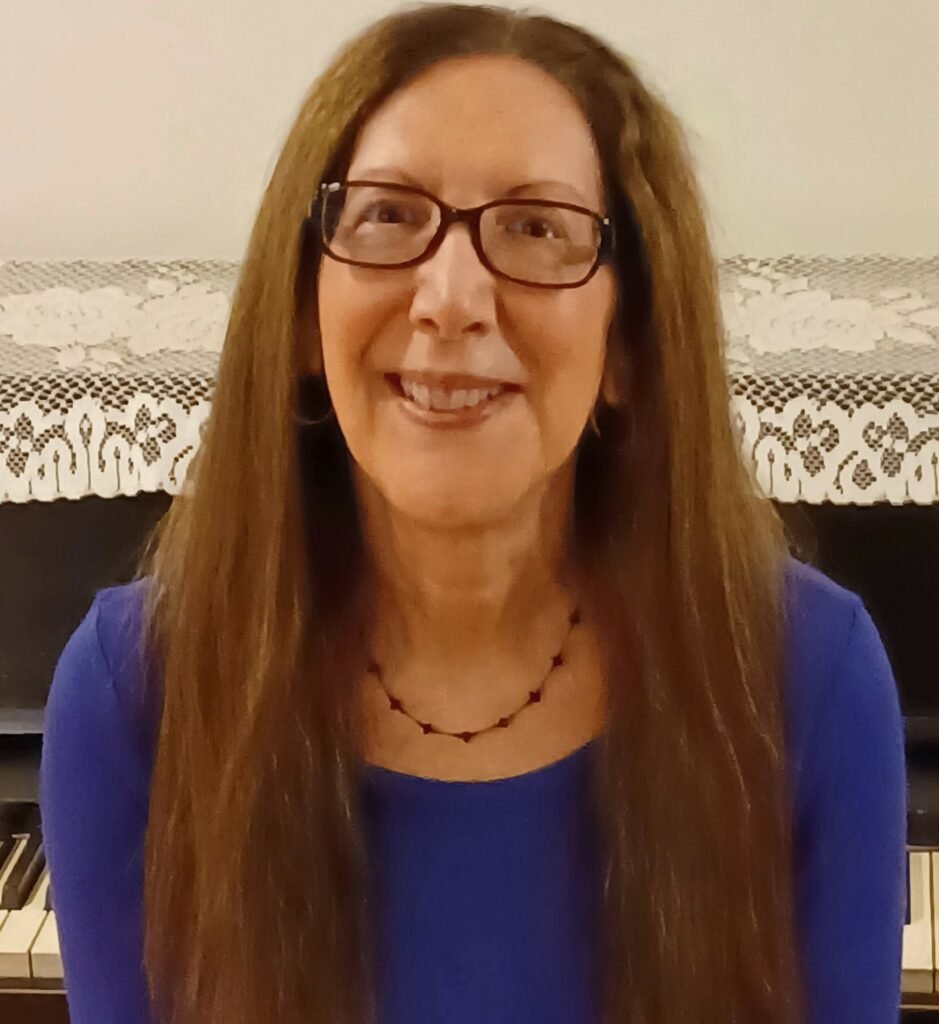
Nancy Naomi Carlson’s translation of Khal Torabully’s Cargo Hold of Stars: Coolitude (Seagull) won the 2022 Oxford-Weidenfeld Translation Prize. Her second full-length poetry collection, as well as Delicates, her co-translation of Wendy Guerra, were noted in The New York Times. She serves as the Translations Editor for On the Seawall.
- Published in ISSUE 27, Translation
- 1
- 2

